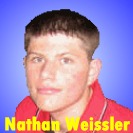Reform and Conservative Judaism in North America
by: Nathan Weissler

However, there was a rapidly growing number of individual members of the Jewish
Community who believed in exploring new ideas; living in the modern world etc.
while simultaneously preserving Jewish tradition. As the years went by,
Conservative Judaism became increasingly popular in Europe and also in the
United States as an alternative to the Reform movement.
In the United States, Rabbi Isaac Leeser of Philadelphia was an early leader of
Conservative Judaism. Modernizations introduced by Leeser included delivering
sermons in English. After Leeserís death in 1868, rabbis such as Benjamin Szold,
Sabato Morais, Alexander Kohut, and others continued his work. The Jewish
Theological Seminary (JTS) was established in 1886 with Rabbi Sabato Morais of
Philadelphia as the first President. After Rabbi Moraisís death in 1897, Rabbi
Solomon Shechter, originally from Romania, succeeded him. After Shechter's
death in 1915, Rabbi Dr. Cyrus Adler became President of the Jewish Theological
Seminary--a position he held until his death in 1940.
The Rabbinical Assembly of America, which is a network of Conservative Rabbis,
was established in 1901 but it was not officially named so until 1919. The
United Synagogue of America, the official synagogue network of Conservative
Judaism, which was later re-named the United Synagogue of Conservative Judaism,
was established in 1913.
Prominent Conservative Jewish thinkers over the course of the 20th century
included Rabbis Mordecai M. Kaplan (who would later found the Reconstructionist
Jewish movement); Abraham Joshua Heschel; Cyrus Adler; Louis Finklestein; Louis
Jacobs to name a few. Conservative Judaism was frequently regarded as a middle
ground between Orthodox and Reform Judaism. In an introduction to the book Emet
Ve-Emunah: Statement of Principles of Conservative Judaism, Kassel Abelson, a
past-President of the Rabbinical Assembly of America wrote of "...a suspicion
that Conservative Judaism is simply a vague, indefinite middle ground between
Orthodoxy and Reform."
The Conservative movement was also active in the modern political Zionist
movement which resulted in the 1948 founding of the State of Israel, and has
remained active in activities relating to Zionism and Israel's welfare.
The Conservative movement, or "Masorti" movement as Conservative Judaism in
known outside the North American Diaspora, is a vibrant participant in Israeli
Jewish life. A highlight of the Masorti movement in Israel is The Schechter
Institute of Jewish Studies in Jerusalem.
Today, the United Synagogue of Conservative Judaism (USCJ) is based in New York
City along with the Jewish Theological Seminary (JTS.) The Conservative
movement also supports Jewish education actively through the Solomon Schechter
Day School Association. Jewish Day Schools affiliated with the association exist
throughout the United States and two Canadian provinces.
Finally, in the spirit of Jewish growth and perseverance, we would do well to
remember a quote from Senator Robert F. Kennedy, "Some men see things that are
and say, 'Why?' I dream of things that never were and say, 'Why not?'"
For more information, see the
website of the
United Synagogue of Conservative Judaism.